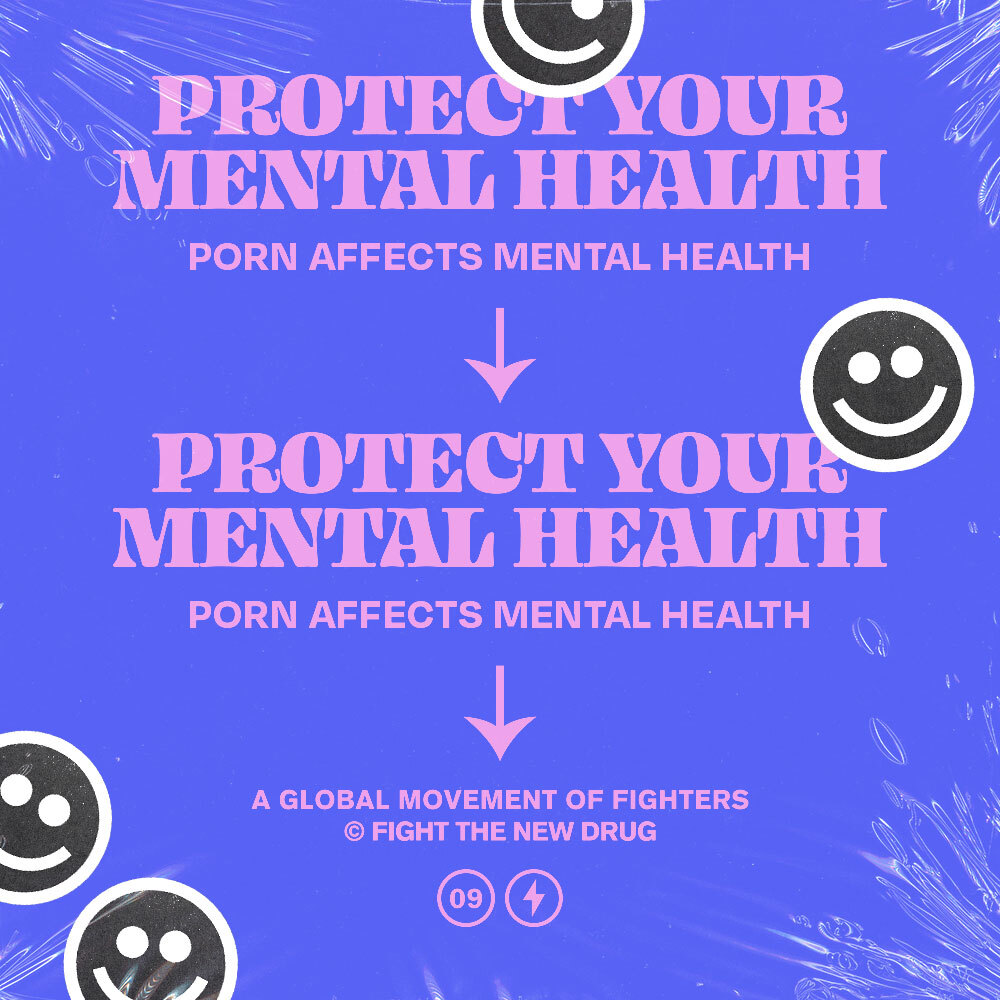FTND note: The aim of this post is to challenge the shaming narrative that can happen in this fight against porn, and offer up an alternative narrative via exploring actual, real-life experiences. It is not our intention to imply that anyone is obligated to date/marry someone with a porn struggle, if they do not want to. These points of advice may look differently from what many other former partners of porn consumers would do, and that’s okay. In the end, it is up to every individual to decide what is best for them—even if that means staying with a significant other who is working through a porn issue, or choosing to walk away.
Here at Fight The New Drug, it has always been our goal to educate and raise awareness on the harmful effects of pornography to society as a whole. We receive countless emails and messages from Fighters all across the world, showing their support for the movement and sharing the facts in order to help change the conversation about porn.
However, while many are repping their ‘Porn Kills Love’ tees and sharing posts about the harms of porn, there is another group of Fighters who have a particular passion for the cause because they are struggling or know somebody who is. We have plenty of people who message us because they aren’t sure how to tell if someone close to them is struggling with porn and how they can help them. When this uncertainty exists in a romantic relationship, boyfriends and girlfriends, husbands and wives can’t help but feel torn by what their partner may or may not be telling them.
We’ve done a lot of research and compiled a lot of information on the topic. The simple fact is that there is no “right” answer; everyone is different and may handle themselves in different ways with porn. And it’s important to note that not even close to everyone who has looked at porn is an addict, or will ever become one.
Even so, the following information can still be useful in identifying a persistent porn habit and how to best support someone who chooses to break free for themselves.
FTND note: the decision for someone to give up porn needs to be fueled by the person deciding to give up porn for them self, first and foremost. Even so, encouragement and support from a loved one can be tremendously helpful in the recovery process.
An easily concealable struggle
With porn literally being available 24/7, 365 through smartphones and internet access, it comes as no surprise that it is quickly becoming a huge issue today. However, unlike alcoholism or other drug addictions, the warning signs aren’t always as easy to spot. Browser histories can be erased, apps can conceal photos, etc. It may take some time, but the behavior of someone who might be struggling with porn can speak volumes.
Dr. Marysia Weber, DO, an osteopathic family physician certified by the American Board of Psychiatry and Neurology, says that those who struggle may feel depressed and show ADHD symptoms, will typically conceal their porn problem from family and friends, and are unable to stop.
Related: What I Did When I Found Out My Boyfriend Watches Porn Behind My Back
“Internet pornography leaves people wanting more and more, but they may not necessarily like what they see, which contributes to symptoms of anxiety and depression,” Dr. Weber says.
We commonly get messages from partners saying they notice their boyfriend/girlfriend will stay in the bathroom for long periods of time. They also notice that they are overly protective of their devices. They also describe a feeling of distance—feeling disconnected emotionally from their significant other for no apparent reason. Note that the presence of things in a relationship do not guarantee that there’s a porn issue, they can just be some things to look out for.
Intimate moments can be a big tell
If your partner insists on pushing you further than your comfort level or suddenly has a bunch of new “ideas” about things to try sexually that are more extreme than usual, you might want to have a talk. On the other end of the scale, if your partner suddenly shows a lack of interest in being intimate or uncharacteristically starts declining you, that can possibly be a sign as well. Also, if your partner has trouble getting aroused when with you, it could be a side effect of his/her porn habit. Again, it could be a totally separate issue from porn altogether, of course. The only way to know is through open, honest, and ongoing conversations.
Often, a consumer will resort to more hardcore, explicit, or shocking material because they’ve been “desensitized” to pornographic material, which could also affect their behavior. In 2014, the Max Planck Institute did an fMRI study that found that more porn use correlated with less reward circuit activation while briefly viewing sexual photos. What this means is that researchers found that the more porn watched, the more porn needed to get the same “high” in the brain.
Over time, a frequent porn consumer’s sensitivities may lessen, due to the nature of the shocking, explicit content they’re seeking out. They may find it difficult to find pleasure in their own relationships, and even everyday life, causing them to feel depressed, unfulfilled and empty. Pay attention to their mood and changes in their personality. People who are hooked to porn can often be irritable and find it hard to act like themselves.
Keep in mind that if any one or all of these issues happen, it very well may not be porn. These are just a few signs that are commonly experienced by those who do have partners with a confirmed porn struggle. Communication is key—try not to assume before something tips you off.
Talk it out
There is one sure way to know if your partner is struggling with pornography: communication.
One way porn affects relationships is by the secrecy and shame that those affected feel. If their partner finds out about their private struggle, the hiding then can make the confrontation feel much worse. The only sure way to avoid these issues in a relationship is to throw it out into the light, and talk openly about it as early as possible.
Related: How To Approach The Subject Of Porn With Your Partner
Express to your partner the harmful effects of porn and especially how their consuming it would make you feel. Have a totally open and honest dialogue that comes from a place of love. Try your best not to judge them or make them feel shameful. Be loving, supportive, and open when you address it. In a healthy relationship, it is ideal that they will listen to you, and they will hopefully open up about what they’ve been dealing with.
If they do confide in you that they have been struggling, be careful not to judge or shame. You may feel hurt, and you are allowed to not be okay and feel your feelings. Understand that they may be dealing with a serious issue, and judging and shaming do not solve anything or encourage positive growth, while showing support for recovery and understanding of how difficult a struggle can be are huge helps. Partnerships thrive because of mutual support and respect, of course, so they also need to understand your hurt, too, if you learn that they have a porn struggle.
Also, keep in mind, just because they watch porn, doesn’t have to mean it’s automatically the end of your relationship if both of you don’t want it to be. Having a desire to watch porn doesn’t automatically turn someone into a “gross” and “perverted” human being—it means that they’re human. Even still, it’s up to every individual to decide what is best for them, whether that’s choosing to stay or choosing to walk away.
Related: Is It A Good Idea To Date Someone Who Watches Porn?
Whatever is decided, by openly talking about porn and not making it confrontational or shamey, you will be shining a light on a much-needed conversation. Being totally honest and open about a topic that most people are too embarrassed to talk about will take away its power to drown victims in secrecy or crippling shame.
Dr. Weber recommends asking the following questions if you want to approach someone about a possible porn addiction.
– Have you ever watched porn? If so, when did you start viewing it?
– How often do you view it? For how long has this been a habit, if it is?
– Why do you watch porn? (This question helps Dr. Weber figure out the triggers for the addiction. Many times, people are sad, lonely, depressed, frustrated or even bored.)
– When did you notice that you were seeking more images for more arousal? (If someone is seeking more images, more often, this is often a sign of desensitization that happens in the pleasure centers of the brain as someone becomes addicted.)
– How long has it been since you last watched porn? (Dr. Weber says that a good rule of thumb is at least three months for someone not to be considered addicted.)
Offer your support and encouragement
If you find that a person close to you is struggling with pornography, they don’t have to fight alone. Yes, the decision to give up porn needs to be solely decided for themself, first and foremost, while encouragement from a loved one can be really helpful in the recovery process.
Dr. Weber suggests that the recovering compulsive porn consumer should have an accountability partner—someone who doesn’t make them feel bad for failing but can find out why they relapsed and encourage them to get back on the road to recovery.
Related: Is The Problem Porn Or Shame (Or Both)?
You can be that person, or another closely trusted friend/family member can. Our friends at Fortify have created an amazing resource that we helped to develop alongside experts, researchers, coaches, and psychologists to help anyone take a step toward recovery.
It can be so frustrating to feel helpless in supporting your partner as they overcome a porn problem. The truth is, it’s their personal battle to fight, but if you choose to stay, you could be a huge encouragement to them through it all. In the end, love wins over shaming, and teamwork wins over fighting alone. Following these tips won’t guarantee a successful recovery, but it won’t hurt their chances, either. Regardless of the struggle, love is always worth fighting for, and there is hope for help.
Need help?
For those reading this who feel they are struggling with pornography, you are not alone. Check out Fortify, a science-based recovery platform dedicated to helping you find lasting freedom from pornography. Fortify now offers a free experience for both teens and adults. Connect with others, learn about your unwanted porn habit, and track your recovery journey. There is hope—sign up today.
Fight the New Drug may receive financial support from purchases made using affiliate links.





